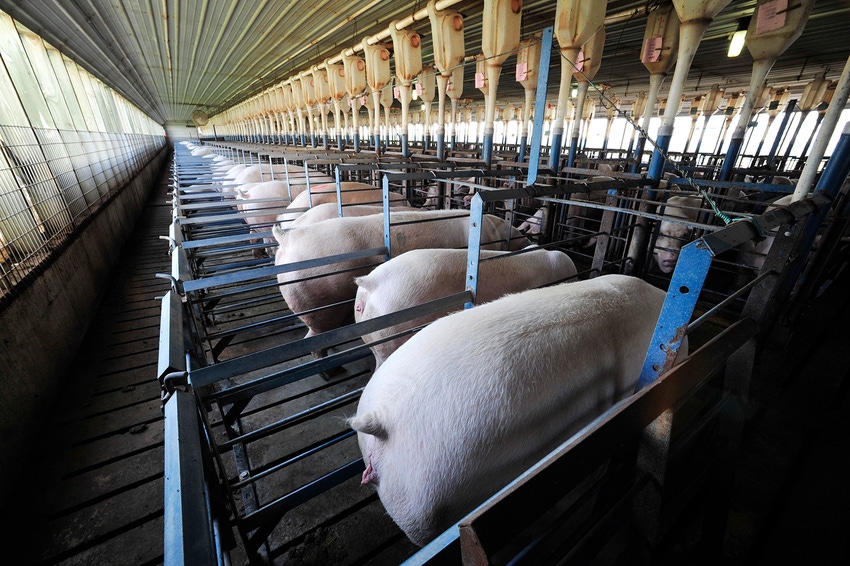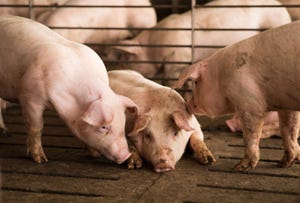FAD investigation confirms SVA in Montana swine herd
Sows were negative for foot-and-mouth disease, African swine fever and classical swine fever.
April 16, 2024

The Montana Department of Livestock has confirmed a case of Senecavirus A. Clinical signs of SVA are indistinguishable from those of swine vesicular disease, vesicular stomatitis virus, vesicular exanthema of swine virus, and foot-and-mouth disease virus, according to the Swine Health Information Center.
While SVA is a low consequence disease, and animals can be sent to market once lesions have healed, due to the similarities to FMD, any cases that are present with snout or coronary band vesicles are investigated as a foreign animal disease to rule out FMD infection.
According to Merry Michalski, DVM, MDOL, a Montana isowean swine facility in north central Montana recently underwent a FAD investigation for vesicular lesions and was determined to be SVA infected. The facility’s three-week-old weanlings developed diarrhea and increased mortality. Extensive testing for common pathogens was negative, so samples were tested and confirmed for SVA.
As part of the on-farm disease management, the facility fed the sow herd an intestinal homogenate from the deceased piglets to provide immune stimulation and support immunity in the sows. The sows began developing vesicles on the snout and feet within a few days of ingesting the homogenate. The sows also were stiff, painful, feverish, lethargic, not eating well, and three died.
It is suspected that the high viral load experienced by the sows led to the severity of their symptoms, Michalski noted. SVA is often clinically described as healthy pigs with vesicles.
The piglets and the sows followed the typical presentation of clinical signs, and there was a high suspicion that the sows were also infected with SVA. The sows were negative for FMD, African swine fever and classical swine fever.
Because of the similarities to FADs, swine with vesicular lesions must be reported to the MDOL immediately at the 24-7 phone line 406-444-2976. Vesicular diseases cannot be reliably differentiated without appropriate diagnostic testing.
The MDOL reminds producers a FAD in North America would disrupt animal movements and commerce. It is crucial for producers and veterinarians to monitor for vesicular lesions in swine herds and report abnormalities for rapid identification and control.
About the Author(s)
You May Also Like



